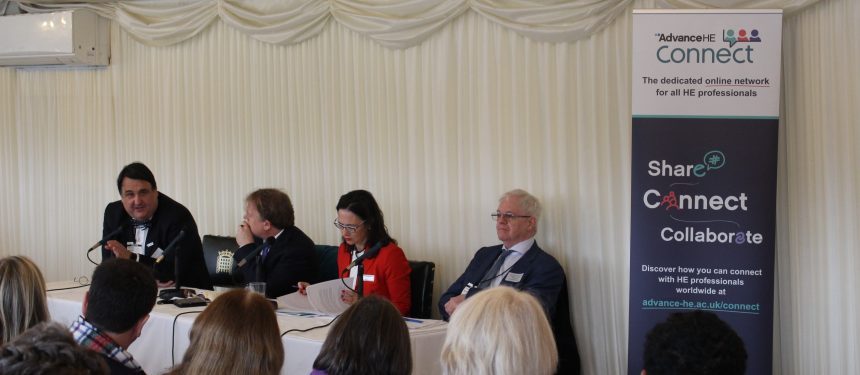UK higher education institutions have an opportunity to shape national identity by focusing on sustainability research and furthering partnerships with Asia, according to HE experts speaking at a recent Higher Education Policy Institute seminar in London.
News and business analysis for Professionals in International Education
Have some pie!
UK HEIs can “shape a new national identity”
 Photo: The PIE News
Photo: The PIE News With Brexit, the UK has “new ordered itself”, professor of Higher Education at the University of Oxford Simon Marginson said at the event, while he proposed UK institutions look to Latin America and central Asia for future collaboration.
“The possibilities are genuinely open to the HE sector”
For a nation whose universities “normally manage our futures with all the due diligence we can muster”, not being within Europe will be a shock for some and universities will not view global strategic partnerships as a “substitute for embeddedness in Europe”, he indicated.
“It’s alarming, it’s also exciting. When that dependency falls away there is a unique moment of freedom before new patterns become set. The possibilities are genuinely open to the HE sector.”
Despite exceptions such as Nottingham Ningbo and Liverpool Xi’an, UK-China research collaboration intensity is “well below” the level of US-China and Australia-China cooperation, Marginson maintained.
“There is not the same interest or knowledge in the UK,” he explained.
The US strategy of accord with the Asian powerhouse since 1978, assuming China’s politics and economy would become more western as the country became more open, has been “notably unsuccessful”, while China has benefited from global integration, Marginson said.
The US-China breakdown may create openings for UK institutions, he added, “but we need to understand what we are in for”.
“I have no doubt that forging fulsome relationships in East Asia is the most pressing strategic need for British universities,” Marginson continued, while the UK can also maintain solidarity in Europe by exercising leadership on sustainability.
“British science sustains a stronger domestic authority than does American science. Higher education agrees with the government about the value of science. Here the sector can advance both its global role and its domestic position,” he said.
“What happens when the lacuna in the national strategy persists for a time after Brexit?” he asked.
“I think this provides the sector with the opportunity to make its own rules. Take initiatives, define the framework, build the alliances, build a global position of its own, and in doing so help shape a new national identity.”
Speakers also explained that UK institutions can look to an example in Australia, a country that had 162,000 Chinese enrolments in 2019.
The foreign interference guidelines, released in Australia in November 2019, was a way for the Group of Eight to ensure members were not left out of the conversation, according to Group of Eight chief executive, Vicki Thomson.
“We were very concerned that our government would impose guidelines upon us and they wouldn’t be guidelines, they’d be regulation or legislation if we didn’t actually come to the table,” she said.
“forging fulsome relationships in East Asia is the most pressing strategic need for British universities”
“Just as you are working your way through Brexit and what it means to your many relationships and testing how they can evolve, there’s the analogy of Australia where we’re working our way as a nation through how to deal with a much stronger China and having national security as a focus,” Thomson said.
Positive dialogue with Australian security agencies means that “now there is an appreciation and understanding amongst our security agencies of our value to our economy through our research and our education”.
UK institutions need to “get to know China, draw lines in the sand when we must, and watch this space”, Marginson added.
“It’s tricky to engage but I think abstention would be the larger error, given the stakes for us.
“We should not sit on our hands as we had to do during the long Brexit debate. The window will not stay open for very long,” Marginson concluded.
Still looking? Find by category:


